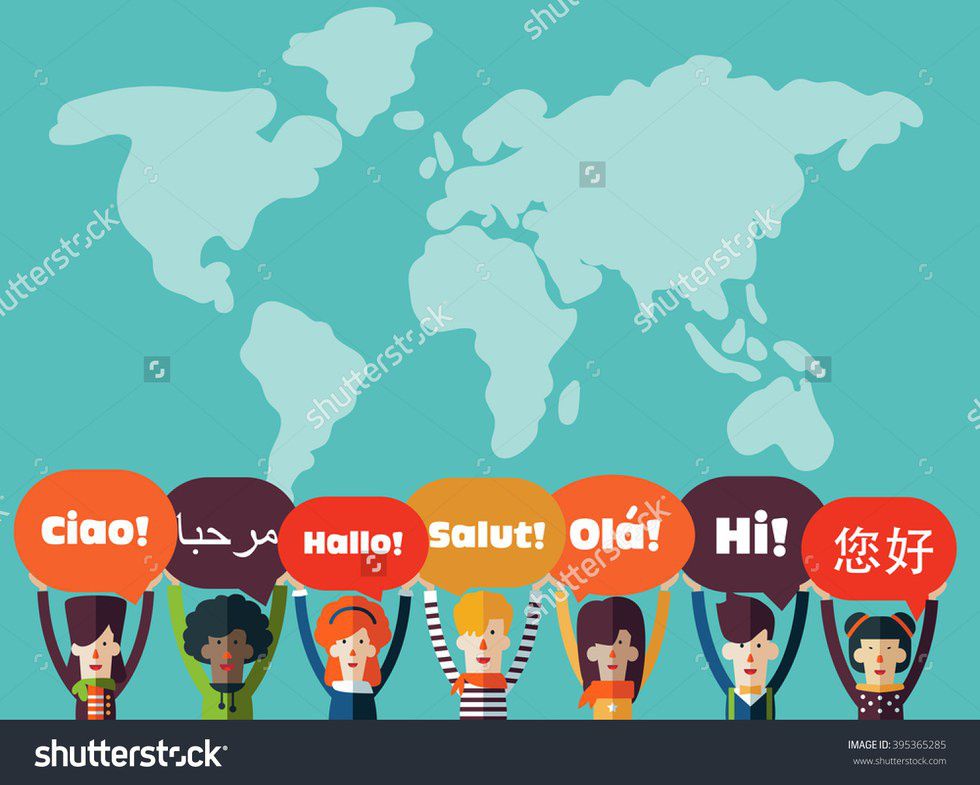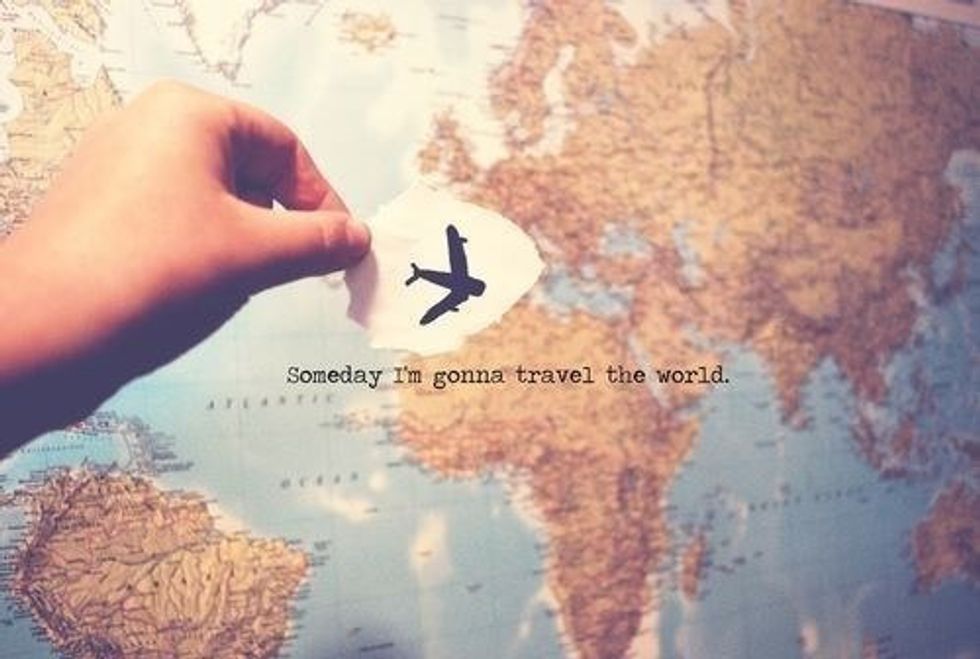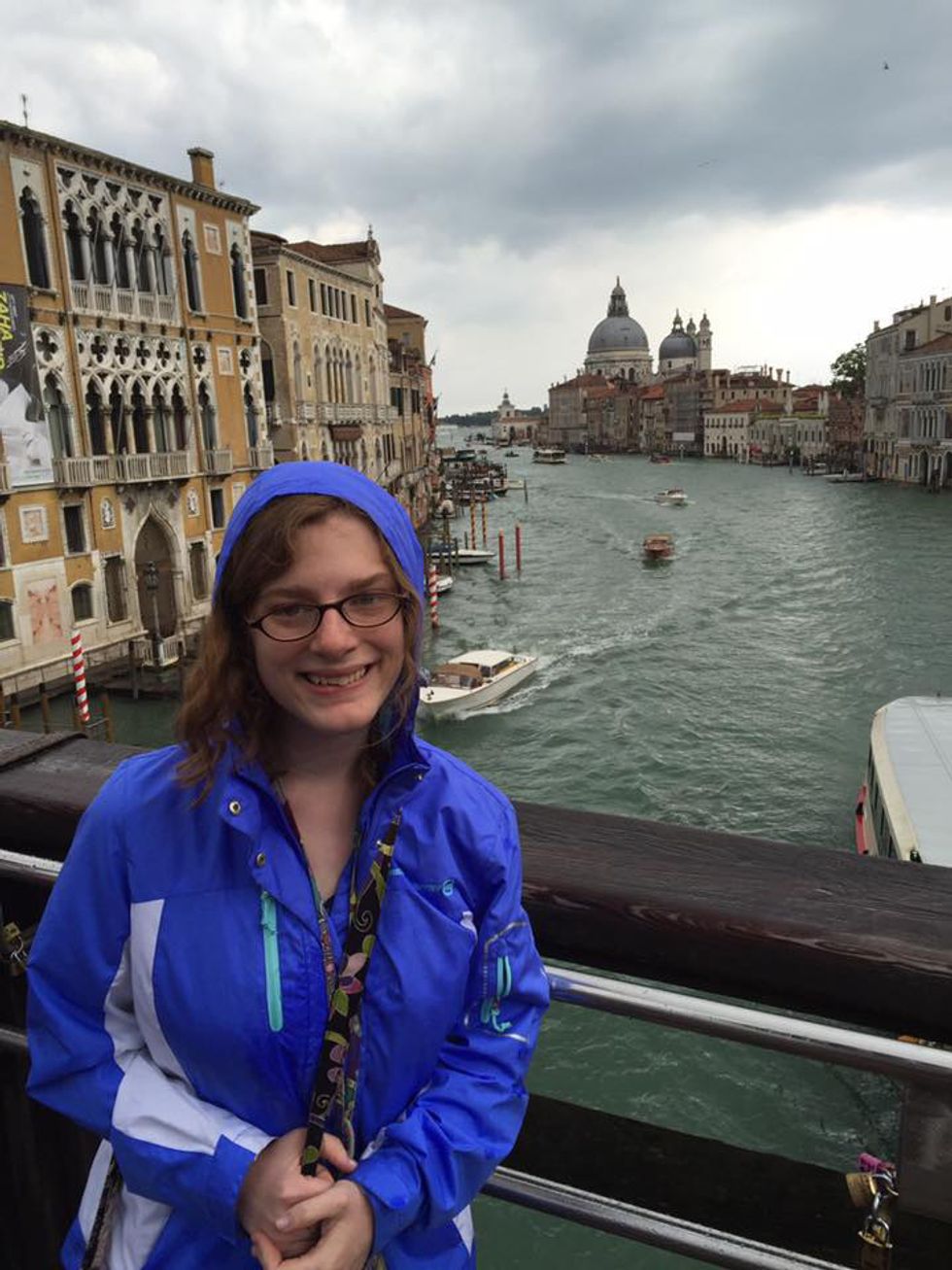As soon as the spring semester ended at Marshall University, I had a weekend to pack for a month long study-abroad experience in Italy. I had never been outside of the United States before and this would be my chance to have a Lizzie McGuire "this-is-what-dreams-are-made-of" moment. My stomach has never experienced the cheesy goodness of authentic Italian pizza or spaghetti al ragu in the shadow of the Santa Croce basilica. All-in-all, it was the most incredible trip of my life. Here are a handful of tips that may make your study-abroad experience as successful as mine:
1. Learn how to read a map.
We were handed maps of Italy on the first day in as a part of the "Welcome" packet from the affiliate organization. Until this trip, I had no clue how to read a map. During childhood road trips, my parents were in charge of the MapQuest directions or atlas. The GPS my mother lovingly named "Garnet," (the Garmin), became a staple in her car when I began high school. It's been a long time since seventh grade Geography class and I wasn't prepared when I pulled out the Italian map booklet. One day, equipped with my map, I ventured out to lunch on my own and for souvenirs. It became quite apparent that I was lost and while the street names were etched on buildings, the names of the streets were so small on the map, that I couldn't find where I was. An American woman, Jane, saw the confused expression on my face and helped me find my apartment on Via Dell'Agnolo with her large print, laminated English map.
My advice is to buy a map of the country you will visit, in your native tongue, before you leave your home country. Draw and highlight routes to your apartment or hotel, restaurants, hospitals, or attractions before you laminate it. If you laminate the map, it won't become folded up and illegible before the end of your trip. Do not use the GPS on your cell phone. While it is tempting, the GPS on an iPhone completely confused and led us in the wrong direction. I don't know if this is true for every country, but you can never go wrong with a tried and true map.
2. Learn some key phrases in the country's official language(s).
Your family members or friends may tell you that if you go to "westernized countries," like Italy or France, that most people speak English. When I lived in Italy, many Florentines, spoke English, but I still sat at my desk and watched Youtube Italian language lesson videos. I wrote down a list of common phrases: Dove il bagno? Come sta? Salve! Most Italians were very gracious concerning my broken Italian and linguistic ignorance, but when I encountered someone who only spoke Italian or very little English, this helped so much. The Florentine people genuinely appreciated when I tried to communicate in their language. The point is, if you go to a foreign country in which the most prominently spoken language is not your native tongue, you should try to have a basic knowledge of the language. You are a guest in their country; therefore, to be courteous, learn some cultural norms and key phrases.
For really challenging conversations, I downloaded the Google Translate App on my iPhone. It works with or without Wifi, and there are tons of languages. You can download it from the App Store for iPhone and Google Play Store for Android. The app is completely free. It also doesn't hurt to carry a language dictionary around. There are pocket sized ones available at many stores.
3. Monitor the exchange rate and exchange your money at your local bank branch, not the airport.
The exchange rate, or how much your national currency equates to a specific foreign currency changes almost daily. When I exchanged my American dollars, the exchange rate was $1.21 to every one Euro. If you monitor the exchange rate and wait on until you're about to leave for a foreign country, you may get a better deal. Try not to exchange at airports or train stations, because they can charge you pretty steep fees, sometimes 10%-15%! Rather, go to your local bank branch and ask them to exchange your money. Depending on the branch, they won't charge you any exchange fees. You'll have to ask, though. My bank branch didn't have any fees.
Also, my mother split all of my paper notes up into small envelopes for each week I would be gone, so I could budget properly and not carry all my money at once. Even though I didn't fall prey to any pickpockets, I would have only been out an envelope instead of all of my money. You don't have to have money belt, but conceal your money and your cell phone well. I had a deep crossbody purse with a thick strap, and it worked well.
4. Be informed, but let yourself wander.
About a week before my time in Italy ended, I started to actually read the information on the city of Florence website. Why I didn't do this earlier in trip escapes me. I found valuable information, like women traveling alone can get a 10% discount off their taxi fares between 9 p.m. and 2 a.m. or that people with physical disabilities can have their state museum or church ticket fee waived. My study aboard experience was faculty-led and my professor is an avid Rick Steves fan. If you don't know who Rick Steves is, he is a travel expert with his own show on PBS. My professor found out about this cool escalator ride instead of a bus ride into Siena, Italy from Rick Steves. A giant stretch of escalators delivered us to Siena and it was a change of pace and fun. Be informed of tips and tricks about the country you are going to visit and you'll have a fuller experience.
The day that Jane helped me find my street on her map, I wandered around until I found a quaint pizzeria. The Margherita pizza was delicious and inside the glass case beside the cash register were several powdered Nutella cannolis! I wanted to buy all of them, but I settled for just two, and the hazelnut spread melted on my tongue. Sometimes we discover good things by accident and this logic can be applied to traveling. Don't follow a rigid schedule if possible, get outside and explore. Wander aimlessly until you find an interesting shop or restaurant. Mingle with the local people and practice their language. Experience the country! Now, this doesn't mean to forgo safety tips; in fact, not only is it safer to travel in a small group or with a friend, but it's meaningful to share these experiences with another person. Always know the phone number for the police, too, it was a great comfort for me.
5. Put down the camera and live in the moment!
I really struggled with this, because I wanted to capture every beautiful painting or church ceiling, but I also wanted to experience it for myself with my eyes, not through a lens or viewfinder. There are so many tourists and international students that are so focused on posting a photo to Instagram, that they aren't experience what is going on around them. When my group traveled to Assisi, I began taking pictures of the countryside parallel to St. Clare of Assisi's Basilica, once I put my phone down for a moment, I realized there was a higher platform to step up on to see more Medieval structures and flora. It was almost like the whole world opened up. Be aware of your senses. Do you smell lemon cake from the bakery ahead? Is the sky a clear blue or filled with white, puffy clouds. When you return to your apartment or hotel, write down every carnal experience from the day. It's a good reminder and meaningful souvenir to yourself.
(Photo from Hailey Leigh Hughes' Facebook. Rainy day in Venice, Italy)
So, what are you waiting on? Go explore. Even if it's just outside your door, the world is waiting!















































